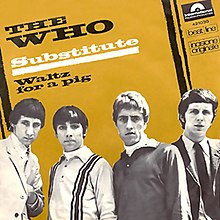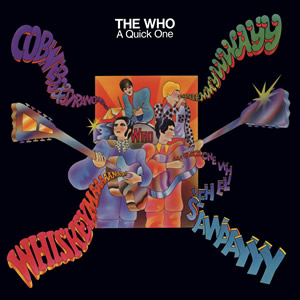
A Quick One is the second studio album by the English rock band the Who, released on 9 December 1966. A version of the album with an altered track listing was released under the name Happy Jack on Decca Records in April 1967 in the United States, where the song "Happy Jack" was a top 40 hit.

My Generation is the debut studio album by English rock band the Who, released on 3 December 1965 by Brunswick Records in the United Kingdom, and Festival Records in Australia. In the United States, it was released on 25 April 1966 by Decca Records as The Who Sings My Generation, with a different cover and a slightly altered track listing. Besides the members of the Who, being Roger Daltrey (vocals), Pete Townshend (guitar), John Entwistle (bass) and Keith Moon (drums), the album features contributions by session musician Nicky Hopkins (piano).

Live at Leeds is the first live album by English rock band the Who. It was recorded at the University of Leeds Refectory on 14 February 1970, and is their only live album that was released while the group were still actively recording and performing with their best-known line-up of Roger Daltrey, Pete Townshend, John Entwistle and Keith Moon.

"My Generation" is a song by the English rock band the Who, written by guitarist and primary songwriter Pete Townshend. One of the band's most recognizable songs, it was placed number 11 by Rolling Stone on its list of the “500 Greatest Songs of All Time” in 2004 and 2010, re-ranked number 232 in the 2021 edition. It became part of The Rock and Roll Hall of Fame's 500 Songs that Shaped Rock and Roll and is inducted into the Grammy Hall of Fame for "historical, artistic and significant" value. It is considered one of the band's signature songs.
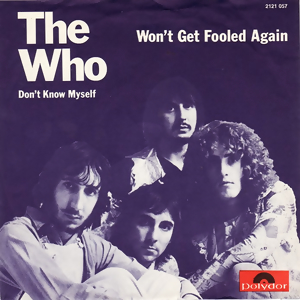
"Won't Get Fooled Again" is a song by the English rock band the Who, written by guitarist and primary songwriter Pete Townshend. It was released as a single in June 1971, reaching the top 10 in the UK, while the full eight-and-a-half-minute version appears as the final track on the band's 1971 album Who's Next, released that August. In the US, the single entered Billboard on 17 July, reaching No. 15.

"My Girl" is a soul music song recorded by the Temptations for the Gordy (Motown) record label. Written and produced by the Miracles members Smokey Robinson and Ronald White, it became the Temptations' first U.S. number 1 single, and is currently their signature song. Robinson's inspiration for writing "My Girl" was his wife, Miracles member Claudette Rogers Robinson. The song was included on the Temptations 1965 album The Temptations Sing Smokey. In 2017, the song was selected for preservation in the National Recording Registry by the Library of Congress as being "culturally, historically, or artistically significant".
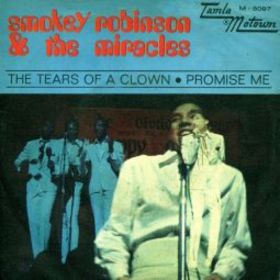
"The Tears of a Clown" is a song written by Hank Cosby, Smokey Robinson, and Stevie Wonder and originally recorded by Smokey Robinson & the Miracles for the Tamla Records label subsidiary of Motown, first appearing on the 1967 album Make It Happen. The track was re-released in the United Kingdom as a single in July 1970, and it became a number-one hit on the UK Singles Chart for the week ending September 12, 1970. Subsequently, Motown released a partially re-recorded and completely remixed version as a single in the United States as well, where it quickly became a number-one hit on both the Billboard Hot 100 and R&B Singles charts.

"Pinball Wizard" is a song by the English rock band the Who, written by guitarist and primary songwriter Pete Townshend and featured on their 1969 rock opera album Tommy. The original recording was released as a single in 1969 and reached No. 4 in the UK charts and No. 19 on the U.S. Billboard Hot 100.

"Ooo Baby Baby" is a song written by Smokey Robinson and Pete Moore. It was a 1965 hit single by The Miracles for the Tamla (Motown) label.

"The Tracks of My Tears" is a song written by Smokey Robinson, Pete Moore, and Marv Tarplin. It is a multiple award-winning 1965 hit R&B song originally recorded by their group, The Miracles, on Motown's Tamla label. The Miracles' million-selling original version has been inducted into The Grammy Hall of Fame, has been ranked by the Recording Industry Association of America and The National Endowment for the Arts at No. 127 in its list of the "Songs of the Century" – the 365 Greatest Songs of the 20th Century, and has been selected by Rolling Stone as No. 50 on its list of "The 500 Greatest Songs of All Time", among many other awards. In 2021, Rolling Stone ranked the Miracles' original recording of "The Tracks of My Tears" as "The Greatest Motown Song of All Time".
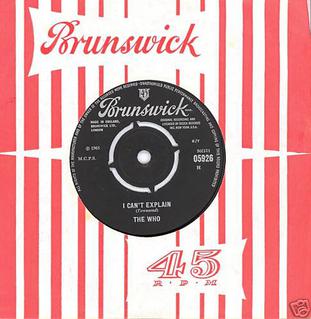
"I Can't Explain" is a song by English rock band the Who, written by Pete Townshend and produced by Shel Talmy. It was released as a single in the United States on 19 December 1964 by Decca and on 15 January 1965 in the United Kingdom by Brunswick. It was the band's second single release and first under the Who name.
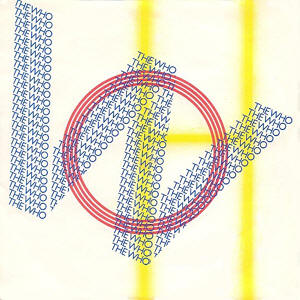
"Who Are You" is the title track on the Who's 1978 album, Who Are You, the last album released by the group before Keith Moon's death in September 1978. It was written by Pete Townshend and released as a double-A-sided single with the John Entwistle composition "Had Enough", also featured on the album. The song was one of the band's biggest hits in North America, peaking at number 7 in Canada and at number 14 in the United States, and has become one of the band's signature tunes at their live shows. The piano on the track is played by Rod Argent.
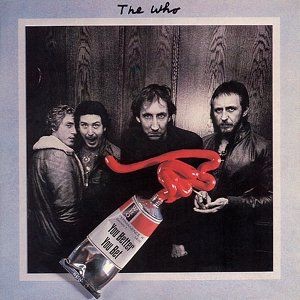
"You Better You Bet" is a song by British rock band the Who, appearing as the first track on their 1981 album Face Dances. It is sung by frontman Roger Daltrey with backing vocals from Pete Townshend and bassist John Entwistle.

"I Can See for Miles" is a song by the English rock band the Who, recorded for the band's 1967 album The Who Sell Out. Written by guitarist Pete Townshend, it was the only song from the album to be released as a single.

"Anyway, Anyhow, Anywhere" was the second single released by the English rock band the Who in 1965. It features call-and-response lyrics and some of the first ever recorded guitar feedback. The song was composed by lead singer Roger Daltrey and guitarist Pete Townshend, the only time they wrote together. The guitar feedback, although not the first to be heard on a record, is thought to be the first solo with feedback. This is the first Who release with Nicky Hopkins playing piano.

"Let My Love Open the Door" is a song written and performed by Pete Townshend from his 1980 album Empty Glass. That year, it reached number nine on the Billboard Hot 100. It peaked at number five on RPM's Top 100 singles chart.

Going to a Go-Go is a 1965 album by the Miracles, the first to credit the group as Smokey Robinson and the Miracles. It includes four of the Miracles' Top 20 hits: "Ooo Baby Baby", "The Tracks of My Tears", "Going to a Go-Go", and "My Girl Has Gone". It was produced by Miracles lead singer Smokey Robinson, along with Frank Wilson and William "Mickey" Stevenson.

"Slip Kid" is a song from the Who's seventh album, The Who by Numbers. Written originally for Pete Townshend's shelved Lifehouse rock opera, "Slip Kid" was revived in 1975. The song was originally written as a warning about the music business, though Townshend has pointed out the song's relevance in different contexts. The song was released as a single in the US, backed by "Dreaming from the Waist", but failed to chart.
"Going to a Go-Go" is a 1965 single recorded by The Miracles for Motown's Tamla label.

"Sunny Afternoon" is a song by the Kinks, written by frontman Ray Davies. The track later featured on the Face to Face album as well as being the title track for their 1967 compilation album. Like its contemporary "Taxman" by the Beatles, the song references the high levels of progressive tax taken by the British Labour government of Harold Wilson, although it does so through the lens of an unsympathetic aristocrat bemoaning the loss of his vast unearned wealth. Its strong music hall flavour and lyrical focus was part of a stylistic departure for the band, which had risen to fame in 1964–65 with a series of hard-driving, power-chord rock hits.
